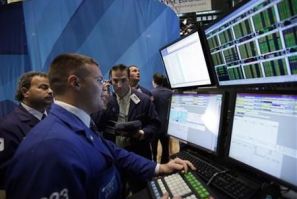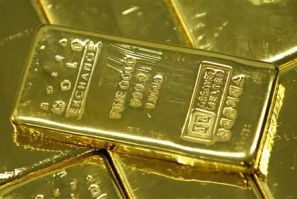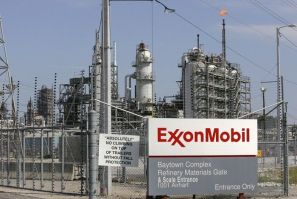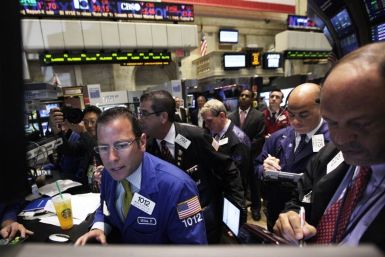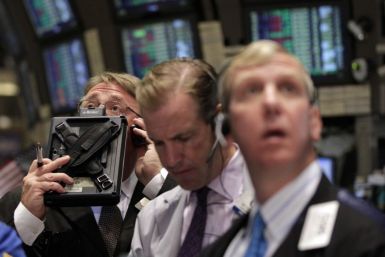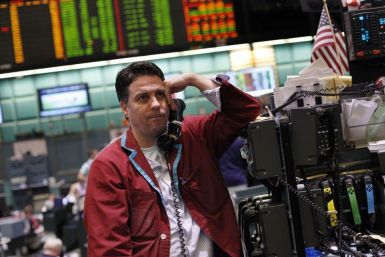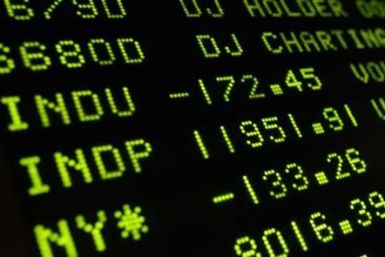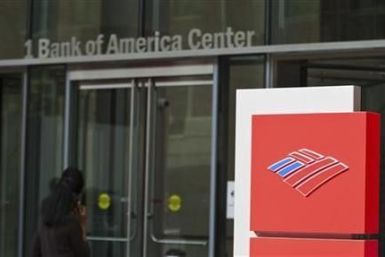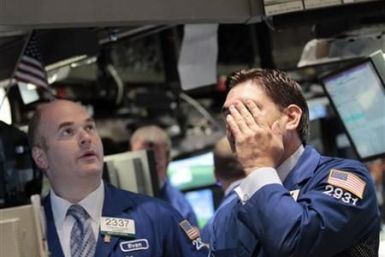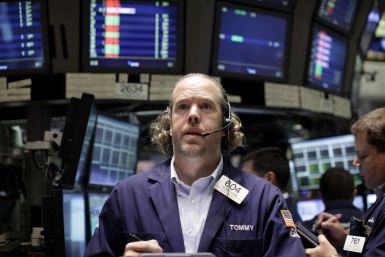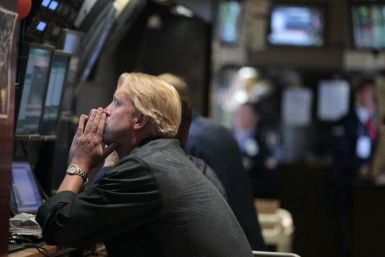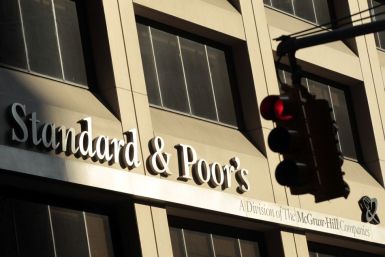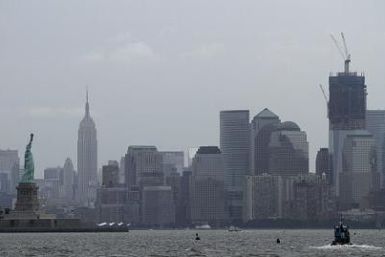The Dow Jones Industrial average closed the day on Monday at 634.76 points. The drop is the sixth worst point decline for the Dow in the last 112 years and the worst since December 2008. Additionally, every stock in the Standard and Poor's 500 index dropped on Monday.
The Dow Jones Industrial Average was rocked by investor fear on Monday, dropping 634 points during trading.
Investors fled stocks on Monday in the first session since Standard & Poor's cut the AAA credit rating of the United States, adding to worry about the economic outlook and Washington's ability to meet the challenges.
Gold notched a new high on Monday as investors ran to the precious metal for safety amid collapsing stock markets.
The Dow Jones industrial average plummeted more than 600 points midday Monday, as the disarray continues following Standard & Poor's downgrading of the United States' credit rating on Friday. The Dow traded down 536.18 points, or 4.7 percent, at 10908.43. It is fast on track to having its worst day since December 2008. Additionally, the Standard & Poor's 500 index sharply went down 68.49 points, or 5.7 percent, to 1130.89.
Amidst the slaughter in equities, Treasuries rallied and gold soared to a new all-time high.
The Dow Jones suffered its sixth-worse loss ever on Monday, dropping 634 points in the first trading day after S&P's downgrade of the United States.
U.S. stocks plummeted for the second straight session, driving the S&P 500 and the Nasdaq down 6 percent on Monday in the first session since Standard & Poor's cut the nation's perfect AAA credit rating.
Next week, Perry is scheduled to visit South Carolina, which just happens to be an important primary state and Haley?s home.
As the Dow Jones Industrial Average dropped more than 500 points on Monday, banking giant Bank of America saw its share price get hammered.
Bank of America's stock tumbled Monday, down 16 percent as investors reacted to a lawsuit filed against the bank by AIG.
Some investors, who were already jittery about the European debt crisis, and continued bad news on the US economic front, appear to have thrown in the towel.
If, as a stock investor, you're a little jittery following Standard & Poor's downgrade of the U.S. Government's credit rating, you're not the only one. The stock market has tumbled, and more declines may be ahead. Even so, keep in mind that a good portion of the money made in stocks stems from not panicking.
Shares of major gold mining companies notched fresh gains in midday trading Monday as the price of the precious metal topped $1,700 per ounce.
U.S. stock index futures tracked a sharp drop in global equity markets on Monday after rating agency Standard & Poor's cut the top-tier AAA credit rating of the United States, rattling already-jittery investors.
In opening minutes of trading, the Dow Jones Industrial Average is down 1.2 percent, S&P 500 has slid 2.2 percent and Nasdaq has fallen 3.1 percent.
U.S. markets shed as much as two percent at the open Monday, on news of the S&P's U.S. debt rating downgrade and subsequent plummets in global markets overnight.
The market's stance heading into the new week is one of caution, following S&P's stunning and controversial downgrade of the U.S. Government's credit rating. Essentially, Wall Street has to figure out if S&P was ahead of the curve, or was remarkably off-base in its analysis, and it's too soon to tell which view will prevail.
U.S. stock index futures point to a sharply lower opening on Monday as the nation lost its risk-free reputation.
S&P?s stunning and controversial downgrade Friday in part reflected the firm?s assumptions about the U.S. political system?s ability to solve its problems. Others hold a more optimistic view, as Winston Churchill did. Churchill said, ?In the end, you can count on America to do the right thing - after she?s exhausted all other possibilities.?
Stocks closed out their worst week in more than two years on Friday in a volatile session that saw the major indexes whip back and forth before the S&P 500 ended down less than a point.
The Dow and S&P 500 dipped into negative territory late on Friday in a volatile session that saw large swings in the indexes, as worries about the economy caused investor skittishness.



